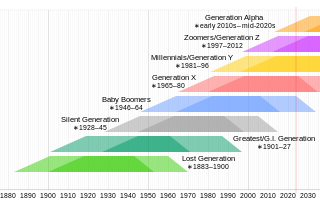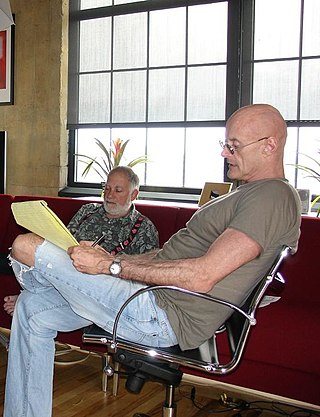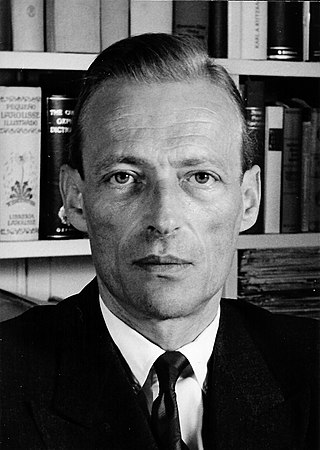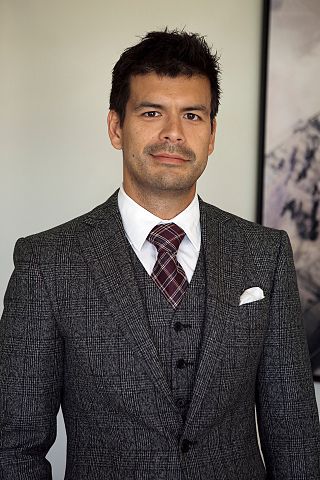
Generation X is the demographic cohort following the Baby Boomers and preceding Millennials. Researchers and popular media often use the mid-1960s as its starting birth years and the late 1970s as its ending birth years, with the generation being generally defined as people born from 1965 to 1980. By this definition and U.S. Census data, there are 65.2 million Gen Xers in the United States as of 2019. Most of Generation X are the children of the Silent Generation and early Baby Boomers; Xers are also often the parents of Millennials and Generation Z.

Millennials, also known as Generation Y, are the demographic cohort following Generation X and preceding Generation Z. Researchers and popular media use the early 1980s as starting birth years and the mid-1990s to early 2000s as ending birth years, with the generation typically being defined as people born from 1981 to 1996. Most Millennials are the children of Baby Boomers and older Generation X. In turn Millennials are often the parents of Generation Alpha.

Kenneth Earl Wilber II is an American theorist and writer on transpersonal psychology and his own integral theory, a four-quadrant grid which purports to encompass all human knowledge and experience.
Spiritual evolution, also called higher evolution, is the idea that the mind or spirit, in analogy to biological evolution, collectively evolves from a simple form dominated by nature, to a higher form dominated by the spiritual or divine. It is differentiated from the "lower" or biological evolution.
Stuart Davis is an American contemporary musician and songwriter. He has been performing throughout the United States and Europe since 1993. Davis regularly works with music producer Alex Gibson, who produced his last five studio albums.

Andrew Cohen is an American spiritual teacher. He is an author, former editor of What Is Enlightenment? magazine, and founder of the global spiritual community EnlightenNext, which dissolved in 2013.

Jean Gebser was a Swiss philosopher, linguist, and poet who described the structures of human consciousness.

Sex, Ecology, Spirituality: The Spirit of Evolution is a 1995 book by integral philosopher Ken Wilber. Wilber intended it to be the first volume of a series called The Kosmos Trilogy, but subsequent volumes were never produced. The German edition of Sex, Ecology, Spirituality was entitled Eros, Kosmos, Logos: Eine Jahrtausend-Vision. The book has been both highly acclaimed by some authors and harshly criticized by others.

Haridas Chaudhuri was an Indian integral philosopher. He was a correspondent with Sri Aurobindo and the founder of the California Institute of Integral Studies (CIIS).

Ervin László is an American philosopher of science, systems theorist, integral theorist, originally a classical pianist. He is an advocate of the theory of quantum consciousness.

Marc Gafni is an American philosopher, author, and rabbi who became a New Age spiritual teacher with a focus on integral theory, eros, and "outrageous love". He is the president of the Center for the Integral Wisdom, which he co-founded with Ken Wilber and he is the president of the Office for the Future. He is the author of twelve books including the USA Book News Award for Your Unique Self: The Radical Path to Personal Enlightenment and Radical Kabbalah He hosted a national television show in Israel called Tachat Gafno from 1999 to 2002.
The "Me" generation is a term referring to Baby Boomers in the United States and the self-involved qualities associated with this generation. The 1970s was dubbed the "Me decade" by writer Tom Wolfe; Christopher Lasch wrote about the rise of a culture of narcissism among younger Baby Boomers. The phrase became popular at a time when "self-realization" and "self-fulfillment" were becoming cultural aspirations to which young people supposedly ascribed higher importance than social responsibility.

Sri Aurobindo was an Indian philosopher, yogi, maharishi, poet, and Indian nationalist. He was also a journalist, editing newspapers such as Bande Mataram. He joined the Indian movement for independence from British colonial rule, until 1910 was one of its influential leaders, and then became a spiritual reformer, introducing his visions on human progress and spiritual evolution.
Integral theory as developed by Ken Wilber is a synthetic metatheory aiming to unify a broad spectrum of Western theories and models and Eastern meditative traditions within a singular conceptual framework. The basis is the concept of a 'spectrum of consciousness' that ranges from archaic consciousness to the highest form of spiritual consciousness, depicting it as an evolutionary developmental model. This model incorporates stages of development as described in structural developmental stage theories, encompassing a variety of psychic and supernatural experiences, as well as models of spiritual growth.

The Passion of the Western Mind: Understanding the Ideas That Have Shaped Our World View is a 1991 book by the cultural historian Richard Tarnas.

The Marriage of Sense and Soul: Integrating Science and Religion is a 1998 book by American author Ken Wilber. It reasons that by adopting contemplative disciplines related to Spirit and commissioning them within a context of broad science, that "the spiritual, subjective world of ancient wisdom" could be joined "with the objective, empirical world of modern knowledge". The text further contends that integrating science and religion in this way would in turn, "have political dimensions sewn into its very fabric".
The working environment has gone through a major transformation over the last decades, particularly in terms of population in the workforce. The generations dominating the workforce in 2024 are baby boomers, Generation X, millennials and Generation Z. The coming decades will see further changes with emergence of newer generations, and slower removal of older generations from organisations as pension age is pushed out. Many reports, including a publication by Therese Kinal and Olga Hypponen of Unleash, warn that understanding differences between the generations, and learning to adapt their management practices is critical to building a successful multigenerational workplace.
Spiral Dynamics (SD) is a model of the evolutionary development of individuals, organizations, and societies. It was initially developed by Don Edward Beck and Christopher Cowan based on the emergent cyclical theory of Clare W. Graves, combined with memetics. A later collaboration between Beck and Ken Wilber produced Spiral Dynamics Integral (SDi). Several variations of Spiral Dynamics continue to exist, both independently and incorporated into or drawing on Wilber's Integral theory. In addition to influencing both integral theory and metamodernism, Spiral Dynamics has applications in management theory and business ethics, and as an example of applied memetics. However, it lacks mainstream academic support.

Bruce Cannon Gibney is an American writer and venture capitalist. He was one of the first investors at PayPal, and went on to work for PayPal founder Peter Thiel's hedge fund Clarium and his venture capital company Founders Fund. His first book, A Generation of Sociopaths: How the Baby Boomers Betrayed America, was published by Hachette in 2017.

The 2010 Nobel Prize in Literature was awarded the Peruvian writer Mario Vargas Llosa "for his cartography of structures of power and his trenchant images of the individual's resistance, revolt, and defeat." The prize was announced by the Swedish Academy on 7 October 2010. He is the first Nobel laureate in Literature from Peru and the fifth Latin American to become one after 1982 Colombian laureate Gabriel García Márquez and 1971 Chilean laureate Pablo Neruda.













